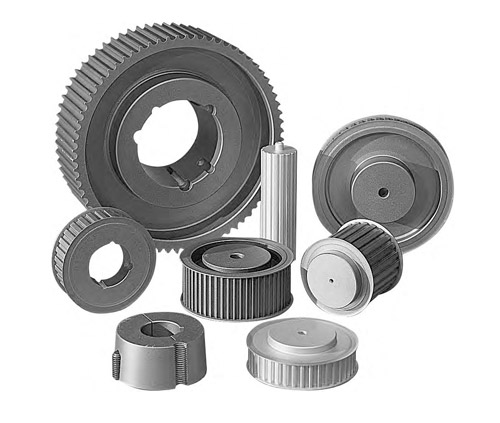Ductile Iron Casting: Process, Advantages and Practical Applications
Ductile iron casting is an important technology in the mechanical industry, producing products with high strength and ductility. With outstanding load-bearing capacity and wear resistance, ductile iron is widely used in many industrial fields. This article will help you better understand the process, advantages and practical applications of ductile iron casting.
What is Ductile Iron?
Ductile iron, also known as spheroidal graphite iron, is a material with a spherical graphite structure instead of a plate-like structure like gray cast iron. Thanks to this special structure, ductile iron has outstanding properties such as:
- Higher tensile strength than gray cast iron.
- Good ductility and wear resistance.
- High load bearing capacity and effective shock absorption.
Ductile iron is commonly used in industries requiring high precision and strength.

Ductile Iron Casting Process
To produce ductile iron, it is necessary to carry out the casting process with the following basic steps:
1. Prepare Ingredients – Ductile Iron Casting
- Liquid iron: Use gray cast iron or white cast iron as the basic material.
- Magnesium (Mg) additive: Added to transform the graphite structure from sheet form to spherical form.
2. Creating Ductile Iron Mixture
- The molten iron is melted at temperatures of about 1350–1500°C.
- Magnesium additives or Magnesium alloys are added in the correct proportions.
- This process helps to create a spheroidal graphite structure, improving the mechanical properties of cast iron.
3. Molding – Ductile Iron Casting
- Mold making: Molds can be made from sand, metal or high heat resistant materials.
- Pour molten iron into mold: Pour quickly and evenly to avoid impurities or air bubbles.
4. Cooling and Finishing
- After pouring, the molten iron is slowly cooled to crystallize and set.
- The product is removed from the mold, cleaned and surface machined if necessary.
Advantages of Ductile Iron Casting
1. High Mechanical Strength
Ductile iron has superior tensile strength and hardness compared to gray cast iron. This helps the product to withstand better force.
2. Good Flexibility and Flexibility
The spheroidal graphite structure increases ductility, preventing nodular cast iron from cracking under high pressure.
3. Abrasion Resistance
Ductile iron has high wear resistance, suitable for applications requiring surface durability.
4. Reasonable Cost
Compared with steel, ductile iron has a lower cost but still meets high technical requirements.
5. Easy to Process
Ductile iron castings are easier to machine than other materials, saving time and costs.
Practical Applications of Ductile Iron Casting
Ductile iron is widely used in many different industries, including:
1. Automotive Industry
- Manufacture of load-bearing parts such as crankshafts, gearboxes, gears.
- Used in brake systems and shock absorbers.
2. Mechanical Engineering
- Making machine parts, transmission shafts, bearings.
- Manufacture of engine housings and frames.
3. Construction Industry
- Manufacturing manhole covers, sewer pipes and products requiring high durability.
- Used as heavy duty joints and supports.
4. Railway Industry
- Manufacture of wheels, rails and related accessories.
- Making joints for train and rail systems.
5. Energy Industry
- Used in the manufacture of turbines, valves, and high-pressure, heat-resistant equipment.
Notes When Using Ductile Iron Casting
- Ductile iron should be stored in a dry place to avoid oxidation.
- Products need to be processed according to standards to ensure mechanical properties.
- Choose reputable suppliers to ensure raw material quality.
Conclude
Ductile iron casting is an advanced technology with many outstanding advantages in terms of durability, ductility and wear resistance. Thanks to modern production processes, ductile iron is widely used in many industrial fields, contributing to improving product performance and life. If you are looking for a durable and efficient material solution, ductile iron is definitely the perfect choice.
Office: 276/9/54 Ma Lo, Binh Tri Dong A Ward, Binh Tan District, Ho Chi Minh City, Vietnam
Factory: 50A Ho Hoc Lam, An Lac Ward, Binh Tan District, Ho Chi Minh City, Vietnam
Tax code: 0318502548
Tel: (+84) 90377 8786 – (+84) 9033 88218
Email: dongson13@gmail.com


